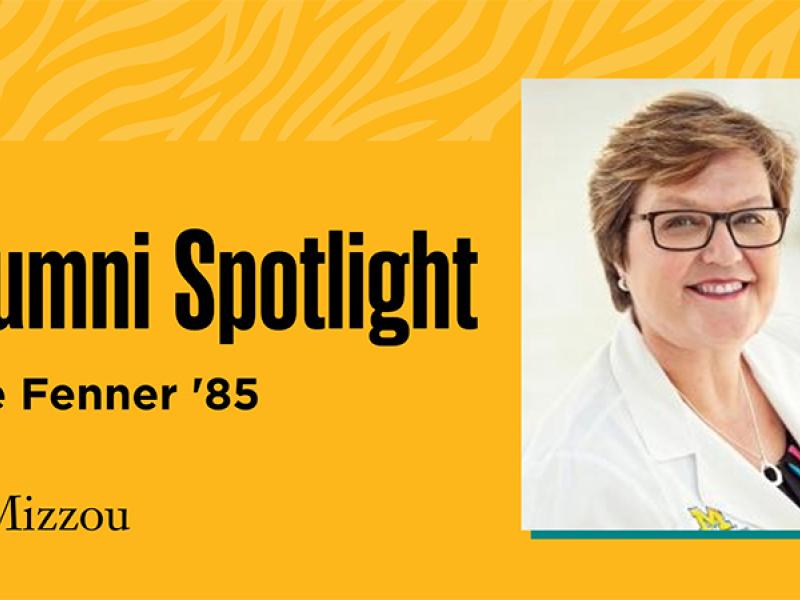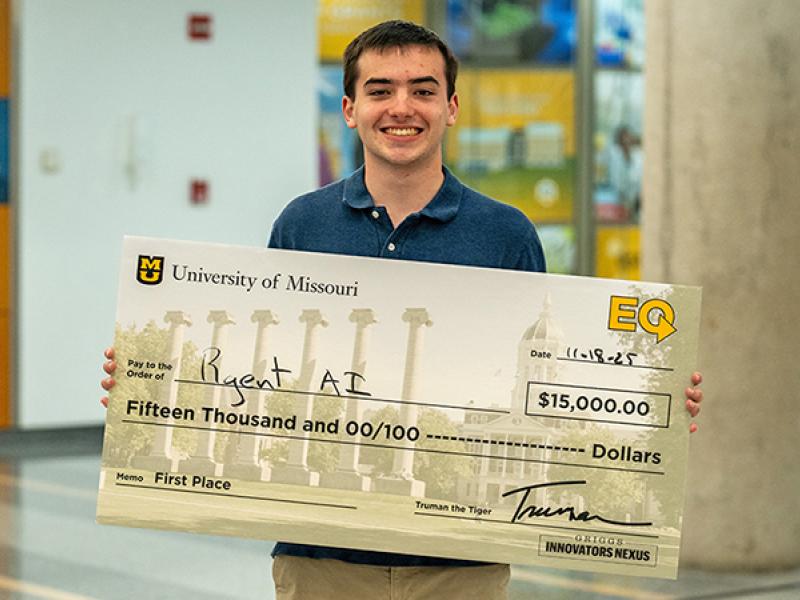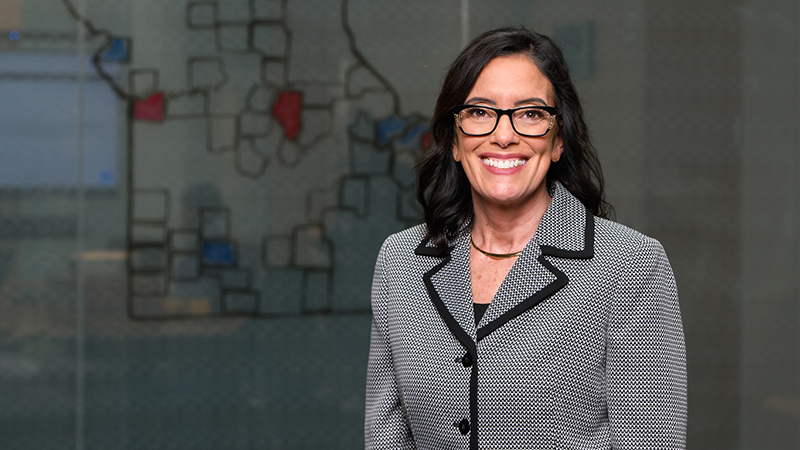
As part of its commitment to being the premier and transformational academic health system for Missouri, the MU School of Medicine is in a key position to improve the supply and distribution of physicians in rural communities.
According to the American Medical Association, more than 65% of our nation’s rural communities have a shortage of primary care doctors. In 1995, the School of Medicine addressed the growing crisis head-on by launching the Rural Scholars Program.
For nearly three decades, Kathleen Quinn, PhD, played a pivotal role in developing and growing the medical school’s rural mission. The past 10 years, she served as the associate dean for rural health at the School of Medicine and concluded her tenure at the end of 2024.
Quinn secured nearly $47 million in grants as the associate dean for rural education and led the Office of Health Outreach, Policy and Education (HOPE) at the School of Medicine and the Rural Scholars Program. She also held the role of senior program director for MU Extension’s Community and Professional Health Education prior to retirement.
Quinn, a Columbia, Missouri, native and recipient of three degrees from the University of Missouri, pinpointed her passion early on in her professional career. Prior to joining MU in 2000, she worked for multiple organizations that specialized in assisting and educating individuals that faced an array of challenges.
“My time with social services taught me about people living below the poverty line and working to become independent,” said Quinn. “My role with the Department of Health and Senior Services taught me about health disparities, access to healthcare challenges and the distrust towards health care providers. I learned firsthand from the most vulnerable and I personally gained from those experiences. My passion grew exponentially to help make an impact on health disparities and access issues across the state.”
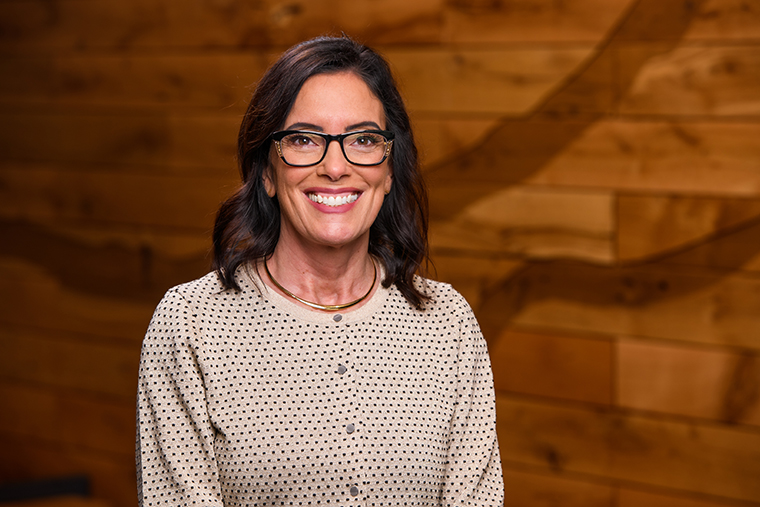
Quinn’s 24-year run at the School of Medicine began as a rural health education coordinator. In 2004, she was promoted to director, beginning her leadership in the Office of Rural Health.
2025 marks the 30th anniversary of MU’s Rural Scholars Program and Lester R. Bryant Scholars Pre-Admissions Program. Since its inception, the Bryant Scholars Program has produced 178 doctors, and more than 64% practice in Missouri, with half practicing in rural Missouri communities. Additionally, 43% practice medicine in critical shortage areas of family medicine, internal medicine and pediatrics.
As the state’s leading educator of physicians practicing in Missouri, the pair of School of Medicine programs have offered medical students interested in rural practice hands-on clinical experience in rural communities.
Quinn helped establish strong statewide partnerships with state agencies, organizations, communities and hospital systems to improve the lives of rural Missourians through the work of MU Extension and HOPE. The success of the Rural Scholars Program has been remarkable, as nearly 60% of all participants now practice in rural areas.
“Rural Health works with populations that may not have been treated well through the health care system in their lifetimes,” said Quinn. “I had the opportunity to educate young people from rural areas who are likely to return after earning their degree to provide better care and change the culture of those areas. We have really strong outcomes from our program and that’s been very fulfilling to see firsthand.”
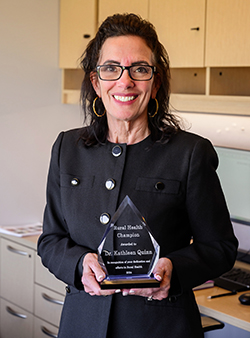
In December 2024 as Quinn wrapped up her final month at the School of Medicine, she was recognized with a fitting award that encapsulated her remarkable decades of service. Recipient of the Missouri Department of Health and Senior Services Rural Health Champion Award, Quinn was honored for going above and beyond for rural health, and whose contributions have made a difference in Missouri rural health care through collaboration, education, innovation and communication.
“I consider Dr. Quinn a Mizzou hero for her dedication,” said Richard J. Barohn, MD, executive vice chancellor for health affairs Hugh E. Sarah D. Stephenson dean of the School of Medicine. “She has done a tremendous amount to raise and elevate the importance the unique health care needs of rural Missourians. I’m incredibly grateful to her for the legacy she’s built.”
As Quinn reflects on the development of MU’s Rural Health initiatives, she’s proud of the unique opportunities the programs provided.
“The patient-centered care we’ve taught our students has been incredible, and I trust that health outcomes have improved,” said Quinn. “Our rural programs have students training on-site in rural communities, where they get the opportunity to meet and learn that population firsthand from our community-based faculty. I believe we’ve produced some of the best physicians in Missouri. Many go on to rural practice and become leaders in their communities.”
Teaching and interaction begin when students are undergraduates, and training continues through medical school. Rural immersion begins with the Summer Community Program where rising second-year medical students are exposed to rural medical opportunities during the summer between their first and second year.
In their third year, students complete clinical rotations in rural settings, including either three core clerkships or the year-long Longitudinal Integrated Clerkship (LINC). In the fourth year, the Rural Elective Program allows medical students to complete their clinical electives in rural settings.
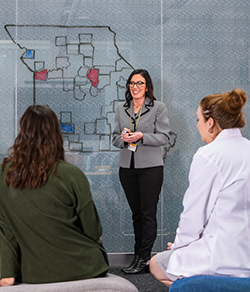
Following Barohn’s official announcement of Quinn’s retirement at the end of 2024, she received droves of communication thanking her for her contributions to the field. As the calendar turned to 2025 and retirement officially in effect, Quinn is eager for the next chapter of her personal life.
Spending more time with her husband, travel and caring for a grandchild due in May are all on the docket.
For Quinn, the ability to fully relax and enjoy life after nearly 40 years in the workforce is also attributed to the talented and dedicated staff she leaves behind at MU.
“The HOPE and Rural Health teams possess the talent, passion and knowledge to continue to effectively operate these programs,” said Quinn. “My goal is for people to say 5-10 years from now, ‘wow, look at the things they’ve accomplished and they’re even better off after Dr. Quinn left.’ I wanted to personally leave these programs when they were in a good place, and when I knew the next group of leaders were ready. There’s no doubt they will exceed my expectations and the citizens of Missouri’s expectations going forward.”



